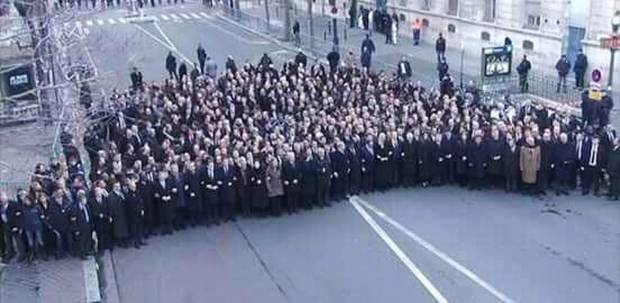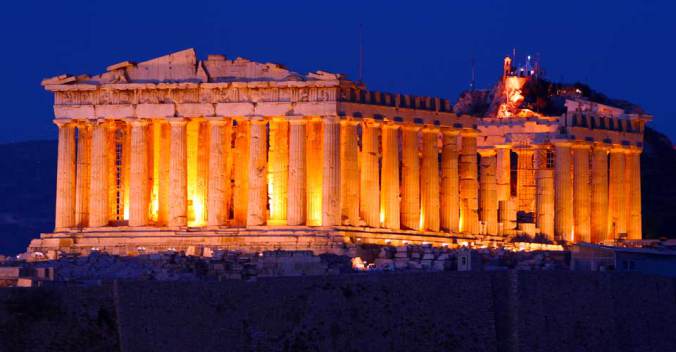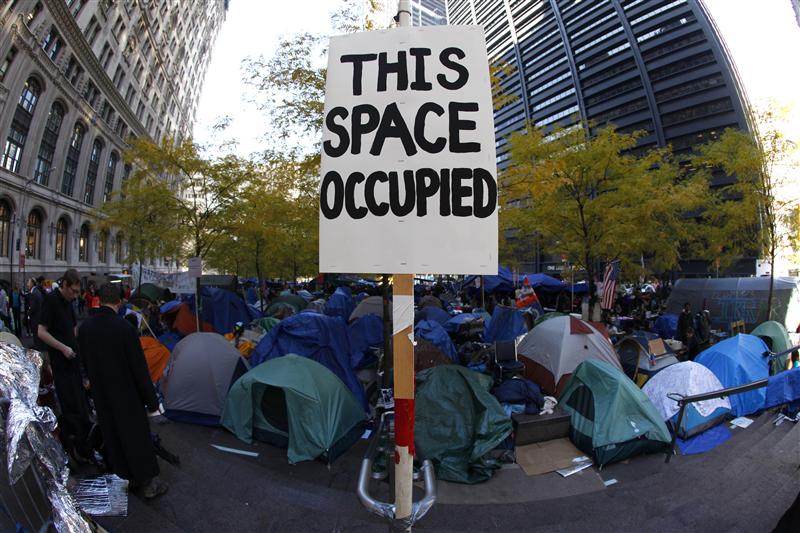Speaking in the late 1980s, Noam Chomsky offers a still highly-relevant and succint breakdown of the reality of democracy as practiced, or engineered, in most western liberal states.
Speaking in the late 1980s, Noam Chomsky offers a still highly-relevant and succint breakdown of the reality of democracy as practiced, or engineered, in most western liberal states.
In the small but politically important American state of New Hampshire, hundreds gathered on a wintry day, many at the end of a 150mile long, 11-day march across the state in freezing temperatures. This movement, led by the reformer and law academic Lawrence Lessig, sees itself as one of the front lines in the battle against the continuing corporatization of our world. At the rally in front of the State House in Concord, NH, 15 year old Ella McGrail delivers this rousing and impressive speech for the reclamation of democracy.
[Dispatch posted by the Bureau for Agent Aa in the field]
.
 Charlie Hebdo offices, Paris, 7th January 2015.
Charlie Hebdo offices, Paris, 7th January 2015.
Another sudden intensification in our evolving multi-dimensional global conflict.
A few perspectives…
The western mainstream almost unanimously responded to events as a barbaric and failed attack on freedom. The massive, instant #JeSuisCharlie grief&solidarity movement appeared to uphold and defend the core liberal values (or rhetoric) of free speech and democracy. This cry was swiftly taken up by global politicians of all stripes – although a wide-angle shot shows their united ‘leadership of the march’ in Paris as a photo-op set-up in an empty street.
Right-wing commentators used the occasion to make absurd tragi-comic slurs about Islam, while in the real world French Muslims tried to navigate the complexity of their situation – and feelings.
It has mostly been left to Muslim and peripheral voices to interrogate the depth causes of the attacks and suggest responsibility might lie with the West’s own violence towards the Arab and Muslim world. Or that they were part of a Jihadist ‘false-flag’ strategy to radicalise European Muslims through “sharpening contradictions” – or even that this actually had nothing to do with religion, free speech or the clash of civilisations, but should be seen as a message from the dispossesed.
Meanwhile, in the quiet spaces, human beings (of liberal, Muslim, Jewish, secular and many other origins, sometimes mixed) have been reflecting on the internal and worldly challenges catalysed by the situation and meditating on the question “How do we respond?”
.
.
[image still from TV news]
.
 Today the Greek Parliament will attempt to elect a new president. Bruno de Landevoisin’s analysis goes back some fundamentals of “Democracy” and reviews the main forces at stake in this socio-politico-financial tragedy. An interesting perspective from America on a highly sensitive issue for the Old Continent to resolve…
Today the Greek Parliament will attempt to elect a new president. Bruno de Landevoisin’s analysis goes back some fundamentals of “Democracy” and reviews the main forces at stake in this socio-politico-financial tragedy. An interesting perspective from America on a highly sensitive issue for the Old Continent to resolve…
Fear… perhaps the dominant force shaping and manipulating global change in our times…
Can we navigate beyond fear and find other ways to make collective decisions about how we want our world to be?
Steve Rushton reviews the ongoing struggle between participatory politics and neoliberalism, taking the Scottish referendum as an example of the polarisation between hope and fear. and then expanding to the wider situation in Great Britain and other global democracy movements.
 In the aftermath of the Occupy Wall Street movement in 2011, Astra Taylor was part of a group of activists that set up Strike Debt. Intending to raise $50,000 to buy up what they considered unjust and unnecessary medical & educational debt, they ended up with $700,000 which they used to abolish millions of dollars of debt. Heather Smith interviews Astra about the campaign. The two discuss democracy, anarchism and the challenges of building coherent momentum for enduring change out of the highly diverse eruptions of Occupy and similar anti-capitalist movements.
In the aftermath of the Occupy Wall Street movement in 2011, Astra Taylor was part of a group of activists that set up Strike Debt. Intending to raise $50,000 to buy up what they considered unjust and unnecessary medical & educational debt, they ended up with $700,000 which they used to abolish millions of dollars of debt. Heather Smith interviews Astra about the campaign. The two discuss democracy, anarchism and the challenges of building coherent momentum for enduring change out of the highly diverse eruptions of Occupy and similar anti-capitalist movements.